Search Results
Showing results 21 to 40 of 196
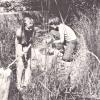
What Lives Here
Source Institutions
In this outdoor activity/field trip, learners explore an aquatic site such as a pond, lake, stream, river or seashore to find and investigate plants and animals that live in water.
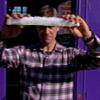
Jem's Pykrete Challenge
Source Institutions
In this activity, learners make pykrete by freezing a mixture of water and a material like cotton wool, grass, hair, shredded paper, wood chips, or sawdust.

Measuring Wind Speed
Source Institutions
In this indoor and/or outdoor activity, learners make an anemometer (an instrument to measure wind speed) out of a protractor, a ping pong ball and a length of thread or fishing line.
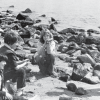
Beachcombing
Source Institutions
In this outdoor activity, learners become beachcombers as they walk on a sandy beach in search of evidence of life.

Moisture Makers
Source Institutions
In this outdoor activity, learners compare the moisture released from different kinds of leaves and from different parts of the same leaf, by observing the color change of cobalt chloride paper.

Dip Dip, Hooray
Source Institutions
Lakes, streams and other freshwater bodies are a habitat for lots of living things, big and small.

Launch Altitude Tracker
Source Institutions
In this activity, learners construct hand-held altitude trackers. The device is a sighting tube with a marked water level that permits measurement of the inclination of the tube.
Disappearing Water
Source Institutions
In this outdoor water activity, learners explore evaporation by painting with water and tracing puddles. Learners will discover that wet things become dry as the water evaporates.
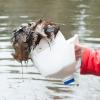
The Scoop on Habitat
Source Institutions
Some aquatic organisms live in open water, while some live in soil at the bottom of a body of water.
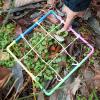
Counting With Quadrants
Source Institutions
Millions of organisms can live in and around a body of water.

Salt Water Revival
Source Institutions
In this outdoor activity, learners visit the intertidal zone of a rocky coastal site well populated with marine organisms.
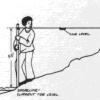
Beach Zonation
Source Institutions
In this outdoor, ocean-side activity, learners investigate the distribution of organisms in the upper region of the intertidal zone.
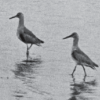
Flocking for Food
Source Institutions
In this outdoor beach activity, learners use a variety of "beaks" (such as trowels, spoons or sticks) to hunt for organisms that shore birds might eat.

Do Your Own Dig
Source Institutions
In this outdoor archaeology activity, learners use mathematical skills and scientific inquiry to generate and process information from their own excavation site.
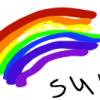
Light is Made of Colors
Source Institutions
Learners observe different light sources, outdoors and indoors, using prism glasses (diffraction glasses) and color filters.
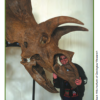
Supersize That Dinosaur
Source Institutions
In this activity, learners explore the size and scale of dinosaurs. Learners listen to "The Littlest Dinosaurs" by Bernard Most. Then, learners estimate the size of a Triceratops and T.

Pollution Patrol
Source Institutions
In this activity, learners explore how engineers design devices that can detect the presence of pollutants in the air.
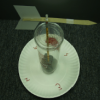
Design and Build a Wind Vane
Source Institutions
In this activity, learners design and build a simple wind vane —one of the oldest kinds of weather tools— and use it to show wind direction.
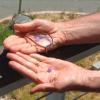
Exploring Ultraviolet (UV) light from the Sun
Source Institutions
In this outdoor activity, learners explore UV rays from the Sun and ways to protect against these potentially harmful rays.

Great Steamboat Race
Source Institutions
In this outdoor activity, learners race small boats, made of cork, balsa wood, popsicle sticks etc., to investigate the rate and direction of currents in a stream or creek.
